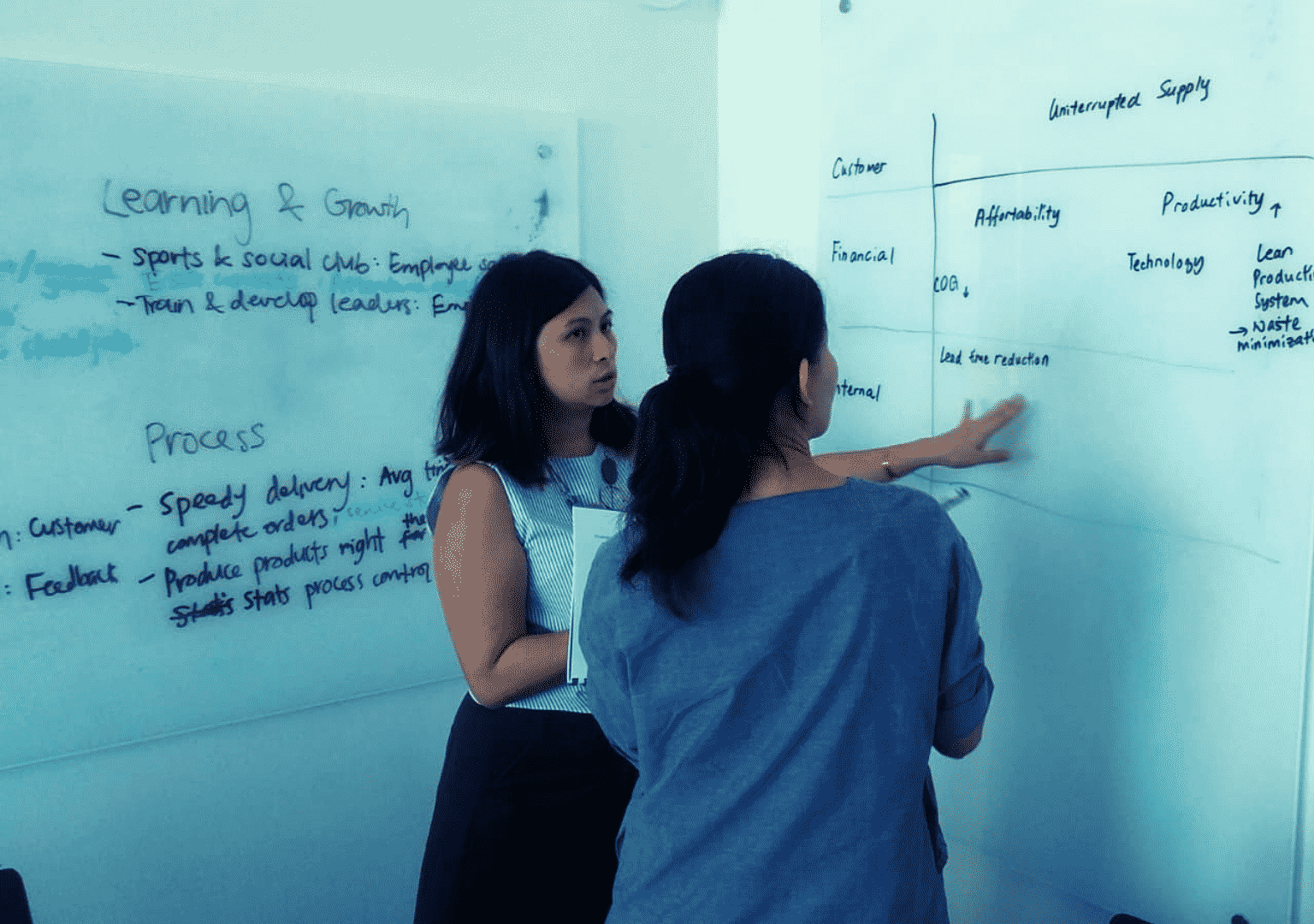
Table of Contents
The importance of soft skills training in corporate environments is profound, resonating with the emotion of empowerment that elevates individuals and organizations to unprecedented heights. In the bustling world of business, soft skills are the heart and soul of success, shaping interpersonal interactions, fostering collaboration, and nurturing a harmonious workplace. Soft skills are the bedrock of effective communication in the corporate world. The emotion of connection flourishes as employees master the art of active listening, empathy, and articulation, forming strong bonds with colleagues, clients, and stakeholders. In the heart of soft skills training lies the emotion of understanding. Employees develop a keen awareness of diverse perspectives and cultural sensitivities, fostering an environment of inclusivity and respect. Soft skills are the lifeblood of teamwork, infusing the workplace with the emotion of camaraderie. As employees build trust and cooperation, they create cohesive teams that achieve greatness together. Embrace the emotion of confidence, for soft skills training empowers individuals to navigate challenges and conflicts with grace. By honing skills such as negotiation and emotional intelligence, employees become adept problem solvers. In the art of soft skills training, the workplace transforms into a sanctuary of motivation. The emotion of enthusiasm permeates the atmosphere as employees approach tasks with zeal and dedication. Through soft skills training, leaders emerge as guiding lights. The emotion of inspiration flows from their interactions, motivating teams to emulate their empathy, vision, and adaptability.

Soft skills training cultivates a culture of growth and resilience. The emotion of determination drives employees to embrace change and continuously evolve, positioning the organization for success in dynamic markets. In the heart of soft skills lies the emotion of innovation. Employees armed with creativity and adaptability become architects of the future, leading their organizations towards cutting-edge solutions. Soft skills are the building blocks of exceptional customer service. The emotion of satisfaction emanates from clients who experience personalized and empathetic interactions, cultivating long-lasting relationships. Through soft skills training, the workplace becomes a sanctuary of emotional intelligence. The emotion of self-awareness guides employees to understand their strengths and limitations, fostering a climate of self-improvement. Embrace the emotion of gratitude as employees benefit from soft skills training. They appreciate the investment in their personal and professional growth, driving them to pay it forward by supporting their colleagues. Soft skills training transforms leaders into visionaries. The emotion of charisma exudes from their interactions, inspiring teams to rally behind their shared goals and aspirations. In the heart of soft skills training lies the emotion of authenticity. Employees learn to express their true selves, fostering an atmosphere where diversity of thought and personality is celebrated.
Soft skills are the fabric of resilience in times of crisis. The emotion of adaptability propels organizations to navigate uncertainty with agility and unwavering determination. Through soft skills training, employees find meaning and purpose in their roles. The emotion of fulfillment emerges as they recognize their impact on the organization’s success. In the art of soft skills training, the workplace becomes a haven of emotional support. The emotion of compassion flows from interactions, creating an environment where employees can seek guidance and share their challenges. Soft skills training is an investment in employee well-being. The emotion of care resonates as organizations prioritize the holistic growth and happiness of their workforce. Embrace the emotion of loyalty, for soft skills training fosters a sense of belonging. Employees feel valued, and in return, they become devoted advocates of the organization’s vision and mission. Soft skills are the keys to unlocking leadership potential. The emotion of empowerment surrounds emerging leaders, fueling their ambition to drive change and inspire others.
In conclusion, the importance of soft skills training in corporate environments cannot be overstated. Soft skills are the heart and soul of successful organizations, driving effective communication, fostering collaboration, and nurturing a positive workplace culture. Embrace the emotion of enthusiasm and determination as employees develop and refine these essential skills, becoming architects of their own success and contributing to the collective triumph of their organizations. Soft skills training is a transformative journey that brings out the best in individuals and fuels the growth and prosperity of corporations. As soft skills take center stage, organizations embark on a path to greatness, where empathy, creativity, and adaptability lay the foundation for a brighter and more harmonious future.
In the emotionally charged landscape of corporate training, designing effective soft skills training programs is a journey of inspiration and dedication for learning and development professionals. One emotional aspect of designing effective corporate soft skills training programs lies in the transformative impact it has on employees’ lives. Witnessing the emotional resonance of individuals as they embrace new skills, such as communication, emotional intelligence, and leadership, fuels a sense of fulfillment and purpose among trainers. The journey of empowering employees to thrive both professionally and personally becomes a driving force behind the design of comprehensive and impactful soft skills training initiatives. Moreover, designing effective corporate soft skills training programs involves understanding the unique needs and challenges of the organization and its workforce. The emotional connection formed between trainers and employees allows for empathy and empathy, enabling trainers to tailor training content and methodologies to address specific concerns and objectives. Furthermore, the emotional resonance of incorporating experiential learning techniques into soft skills training programs is profound. Utilizing role-plays, case studies, and simulations, trainers create immersive learning experiences that evoke emotions of excitement and curiosity among employees. Witnessing the positive impact of experiential learning on skill application and retention reinforces the value of designing training programs that go beyond traditional lectures and engage learners on a deeper level.

Another emotional aspect of designing effective corporate soft skills training programs is the emphasis on practical application and real-world relevance. Trainers witness the emotional fulfillment of employees as they take the skills learned in training and apply them directly to their roles, creating a sense of empowerment and ownership in their professional growth. Moreover, effective corporate soft skills training programs recognize the importance of ongoing support and reinforcement.
The emotional impact of learning together and supporting each other’s growth reinforces a positive and supportive work culture where employees feel valued and encouraged to excel. The emotional resonance of incorporating feedback and evaluation mechanisms into soft skills training programs is significant. Trainers witness the transformation of employees as they receive constructive feedback and actively work towards improvement. This cycle of continuous feedback and growth instills a growth mindset that drives individuals to continuously strive for excellence in their soft skills. Moreover, designing effective corporate soft skills training programs involves tapping into the emotional intelligence of trainers. By being empathetic, approachable, and attentive listeners, trainers create a safe and supportive learning environment where employees feel comfortable expressing themselves and embracing vulnerability. The emotional connection formed between trainers and learners fosters trust and openness, enabling a deeper level of learning and skill development.
Additionally, the emotional aspect of designing effective corporate soft skills training programs involves incorporating storytelling and real-life examples. The emotional impact of relatable stories and experiences resonates with learners, making training content memorable and inspiring. Witnessing the emotional connection formed between learners and the training content reinforces the value of creating meaningful and impactful learning experiences. In conclusion, designing effective corporate soft skills training programs is an emotionally charged and transformative endeavor that holds the power to shape individuals and organizations. The emotional fulfillment of empowering employees to thrive in their roles, fostering a positive work culture, and driving organizational success fuels the dedication and passion of learning and development professionals. By incorporating experiential learning, real-world relevance, ongoing support, group learning experiences, feedback, emotional intelligence, and storytelling, trainers create comprehensive and impactful soft skills training programs that evoke emotions of excitement, empowerment, and growth among employees. The journey of designing effective corporate soft skills training programs exemplifies a commitment to cultivating a workforce that is equipped with the essential skills to succeed in today’s dynamic and people-centered business landscape.
Welcome to this comprehensive guide on essential soft skills for corporate professionals. To truly excel and make a positive impact, one must possess a diverse set of soft skills. These skills go beyond technical expertise and allow professionals to effectively communicate, collaborate, and lead with empathy and confidence. Effective communication is the lifeblood of any successful professional. Embrace the art of connection and watch your professional relationships flourish. To thrive in the corporate realm, honing emotional intelligence is essential. Recognize your own emotions and those of others, fostering a compassionate work environment that nurtures creativity and productivity. Empathy is the key to building strong bonds within your team and across the organization. The corporate landscape is ever-evolving, and adaptability is the superpower that empowers professionals to stay ahead. Embrace change with an open heart, and you’ll find yourself navigating challenges with courage and resilience. Time is a precious resource, and effective time management is the key to juggling multiple tasks, meeting deadlines, and achieving work-life balance. Embrace time management techniques and witness the transformation in your productivity and emotional well-being. In the symphony of corporate success, collaboration plays a vital role. Embrace teamwork, contribute your strengths, and support others in their journeys. The camaraderie built through collaboration can foster a strong sense of belonging and accomplishment. Leadership goes beyond title and authority. It is about inspiring others to achieve greatness, nurturing their potential, and leading by example. Embrace your leadership journey with passion, and you’ll evoke the best in those around you.

Conflicts are inevitable, but how we approach them determines their impact. Embrace conflict resolution with emotional intelligence and tact, turning challenges into opportunities for growth and unity. Approach problem-solving as a thrilling puzzle waiting to be solved. Embrace challenges with an emotional drive, and you’ll uncover ingenious solutions that set you apart as a resourceful professional.
Life is full of ups and downs, and resilience is the beacon that keeps us going. Embrace resilience in your professional journey, and you’ll find yourself bouncing back stronger from setbacks and adversity. Conflicts may arise, but with adept conflict management skills, you can turn discord into harmony. Embrace open communication, active listening, and empathy to find common ground and foster understanding. Embrace assertiveness to communicate your needs and boundaries confidently. Your emotional conviction will not only garner respect but also empower you to seize opportunities and stand up for your beliefs. Networking is more than just exchanging business cards; it’s about building meaningful connections. Embrace networking opportunities with emotional sincerity, and you’ll create a powerful support system that can fuel your professional growth. Embrace public speaking with passion, and you’ll empower your voice to inspire and influence others. Effective communication before an audience can elevate your credibility and impact. Assemble a dream team by embracing team-building skills. Emotional bonding, shared goals, and a sense of camaraderie will foster a team that collaborates seamlessly and achieves remarkable outcomes.
Embrace negotiation with emotional intelligence, seeking solutions that benefit all parties involved. Effective negotiation skills can lead to fruitful partnerships and successful deals. Embrace confidence with an emotional charge, and you’ll unlock your true potential. Embrace the act of empowering others to grow and succeed. By supporting and uplifting your colleagues, you create a harmonious work environment that fosters mutual growth and emotional fulfilment. Congratulations on completing this emotional journey through the realm of soft skills for corporate professionals. By embracing these essential skills with heart and passion, you will unleash your true potential and forge a fulfilling and successful career in the corporate world.
Greetings, valued learners, as we embark on an exhilarating journey of exploration into the profound impact of soft skills training on employee performance! Throughout this transformative odyssey, we shall delve deep into the realm of emotions, uncovering the incredible power of nurturing essential skills that not only enhance workplace productivity but also elevate the well-being of individuals. In our pursuit of knowledge, let us uncover the delight of cultivating a culture of continuous learning and growth, where employees are encouraged to embrace emotional intelligence, communication, collaboration, and adaptability. As we set forth on this adventure, let our hearts be open to the vast potential residing within each individual, awaiting discovery through the magic of soft skills training. Revel in the beauty of empathy, understanding, and emotional awareness, for they form the threads that weave a tapestry of trust and camaraderie among team members. Observe the flourishing of authentic connections that nurture a harmonious work environment, enriching the lives of employees and magnifying their collective achievements. As we venture into the impact of soft skills training, allow yourselves to be stirred by the narratives of personal growth and transformation. Witness the emotional voyage of individuals as they triumph over challenges, communicate with clarity, and collaborate with newfound purpose and unity. Experience the thrill of observing tangible improvements in employee performance, not solely in terms of productivity but also in job satisfaction and overall well-being.

As soft skills training takes root, the ripple effect of positive emotions and enhanced interactions shall blossom, extending beyond the workplace to touch lives beyond our immediate sphere. May you feel an overwhelming sense of pride as you witness the direct correlation between soft skills training and heightened employee engagement. A workforce empowered with emotional intelligence and effective communication remains steadfastly devoted to organizational goals, paving the path for sustained success and a profound sense of belonging. Amidst this enriching journey, let us revel in the beauty of personal anecdotes and testimonials that highlight the profound impact of soft skills training on employees’ lives. Immerse yourselves in the heartfelt stories of individuals whose lives have been transformed by newfound confidence, enhanced communication, and harmonious relationships. These tales of triumph shall reinforce the emotional significance of soft skills training and inspire us all to continue nurturing these essential qualities within ourselves and others.
Let your heart be moved by the genuine empathy and compassion that soft skills training instills in leaders. As managers embrace emotional intelligence, they create an environment where employees feel valued and supported, leading to heightened job satisfaction and enhanced individual performance. As we navigate the realm of employee performance, let us not forget the immeasurable value of resilience and adaptability that soft skills training instills. In times of change and uncertainty, these skills act as anchors that empower individuals to weather storms, embrace challenges, and emerge stronger and more determined. Celebrate the emotional resilience that sprouts from soft skills training, transforming employees into agile and steadfast pillars of strength. Celebrate the emotional victories of individuals who, through soft skills training, discover their unique strengths and passions. Witness the emotional connection they form with their work, as they are empowered to bring their whole selves to the table, embracing authenticity and unleashing their true potential. Prepare to be inspired by the extraordinary ripple effect of soft skills training on team dynamics and collaboration. As individuals refine their ability to empathize, communicate, and work cohesively, the very fabric of teamwork is woven with compassion and synergy. Witness the emotional bonds that form among team members, uniting them in pursuit of shared goals and fostering an atmosphere of mutual support and encouragement. Revel in the positive energy that permeates the workplace when employees feel heard, valued, and respected. As soft skills training cultivates a culture of active listening and empathy, conflicts dissolve, and teamwork flourishes, creating a vibrant and dynamic environment that inspires peak performance.
In the pursuit of excellence, embrace the emotions of fulfillment and gratification that arise from witnessing personal growth and professional development among employees. As you, the esteemed learners, impart the knowledge and wisdom of soft skills training, take pride in knowing that you are the architects of positive change. Your dedication to enhancing employee performance fills the workplace with renewed energy and optimism, nurturing a culture of success and achievement. Revel in the exhilarating triumphs as organizations witness heightened customer satisfaction and unwavering loyalty, all brought about by employees’ finely honed soft skills. Observe the emotional tapestry that weaves between employees and customers, where trust and understanding form the bedrock of enduring business relationships. Let us immerse ourselves in the profound realization that soft skills training extends far beyond elevating employee performance; it enriches lives and communities, leaving an indelible mark of positive change. Embrace the profound impact of emotional intelligence and effective communication as we embark on a journey towards a brighter and more compassionate future, hand in hand. As we reach the culmination of this enriching course, let the radiant flame of emotional intelligence, communication prowess, and adaptability illuminate the path of business success. Equipped with the insights and understanding garnered from this transformative journey, may you continue to champion the cause of soft skills training, empowering individuals and organizations to flourish amidst challenges and seize opportunities. The emotional legacy of this course shall forever reside in your hearts, fuelling an unwavering commitment to fostering excellence in employee performance.
Finally, brimming with gratitude and newfound wisdom, we bid farewell to this course, carrying its emotional essence as certified business trainers. As we impart our learnings and wisdom, may the ripple effect of soft skills training spread far and wide, transforming workplaces into nurturing hubs of growth, collaboration, and emotional abundance. With hearts ablaze with inspiration and thankfulness, let us embark on our onward journey, spreading the transformative power of soft skills training across boundaries. May our emotional dedication to growth and development kindle a flame of positive change, touching countless lives and creating a world where empathy, communication, and collaboration are the catalysts for resounding success and profound fulfillment.
Welcome to our transformative course on “The Role of Emotional Intelligence in Corporate Soft Skills Training”! In this journey of self-discovery, we delve into the profound impact of emotions on workplace interactions. Emotions are the very essence of human experience, shaping how we communicate, collaborate, and thrive in a corporate setting. Through this course, we aim to unleash the power of Emotional Intelligence (EI) and elevate your soft skills to unprecedented heights! Picture a workplace where empathy, understanding, and compassion reign supreme. Emotional Intelligence serves as the bedrock of such a utopian environment, fostering authentic connections between colleagues. By recognising and managing our emotions effectively, we can break down communication barriers and create a culture of inclusivity and psychological safety. Let your emotions guide you on this path to becoming a true leader, respected and admired by your peers. Embrace the beauty of self-awareness, a crucial pillar of Emotional Intelligence. Discover the nuances of your feelings and responses, gaining insights into your strengths and areas for growth. By learning to comprehend your emotions, you will be better equipped to comprehend others around you. Empathy blooms when we understand our own emotional landscapes, paving the way for genuine understanding in the corporate realm. The impact of Emotional Intelligence extends far beyond personal interactions. This course shall equip you with the tools to handle stressful situations gracefully, enhancing your resilience in the face of challenges.

As we explore the significance of Emotional Intelligence, you’ll discover its pivotal role in conflict resolution and effective teamwork. Emotional Intelligence enables you to navigate disagreements with tact and empathy, fostering an atmosphere of harmony within the workplace. Witness firsthand how emotions can bridge gaps and foster bonds between colleagues, resulting in a high-performing and cohesive team. Step into the realm of emotionally intelligent leadership, where the ability to inspire, motivate, and support your team lies at the heart of success. Cultivate emotional resonance with your workforce, empowering them to unleash their full potential. Lead with passion, kindness, and understanding, and watch as your team thrives under your nurturing guidance. Throughout this course, you’ll embark on a journey of self-discovery, unearthing the depths of your emotional intelligence. Embrace vulnerability, for it is the path to genuine connection and emotional growth. Celebrate the triumphs, acknowledge the challenges, and cherish the moments of enlightenment as you emerge with newfound emotional acuity. In conclusion, “The Role of Emotional Intelligence in Corporate Soft Skills Training” holds the key to unlocking your true potential as a dynamic and empathetic professional. Let your emotions be your compass, guiding you towards fulfilling relationships and a flourishing career. Embrace the transformative power of Emotional Intelligence and witness how it paves the way for a brighter, more emotionally enriched corporate future.
In our pursuit of excellence, we must not underestimate the profound impact Emotional Intelligence has on communication. As you immerse yourself in this course, you’ll witness the magic that occurs when emotions intertwine with words. Embrace active listening and attune yourself to the unspoken emotions of your colleagues. Watch how a gentle nod, a warm smile, or a compassionate touch can transcend barriers, leaving a lasting impression on those around you. Let your emotions craft your words with sincerity, authenticity, and empathy, forging connections that resonate long after the conversations end. Through the lens of Emotional Intelligence, we unearth the art of adaptability and flexibility in the corporate world. Embrace change with open arms, and allow your emotions to guide you through transitions. Nurture resilience, for it is the cornerstone of thriving amidst uncertainties. With EI as your guide, you’ll discover the strength to bounce back from setbacks, transforming challenges into opportunities for growth. Embrace the ever-evolving nature of the corporate landscape, and let your emotions become the sails that carry you forward on uncharted waters. In the realm of leadership, Emotional Intelligence stands as a beacon of authenticity and transparency. Empathetic leaders inspire trust and loyalty, cultivating an environment where employees feel valued and heard. This course shall unveil the transformative power of emotional authenticity, empowering you to lead with integrity and genuine concern for the well-being of your team. As you embrace your emotions, you’ll find that vulnerability becomes a strength, forging deep connections that foster loyalty and commitment. A corporate world infused with Emotional Intelligence gives rise to innovation and creativity. Embrace the magic of emotions as they kindle the flames of inspiration within you and your team. Witness the sparks of brilliance that fly when a workplace cultivates emotional safety, encouraging individuals to share their ideas without fear of judgment. Nurturing an emotionally intelligent environment allows the seeds of creativity to flourish, propelling your organization towards unprecedented heights of success.
The fabric of corporate relationships is intricately woven with trust, and Emotional Intelligence forms its very foundation. This course celebrates the importance of trust-building through empathy, consistency, and emotional support. Embrace vulnerability and let your emotions paint a vivid picture of authenticity. As you honour your commitments and uphold ethical values, your colleagues will find in you a trusted ally, fostering an atmosphere of camaraderie that bolsters productivity and fosters a sense of belonging. In the grand tapestry of corporate life, Emotional Intelligence serves as the thread that weaves individuals into a cohesive and dynamic community. This course challenges you to embark on an inward journey of emotional discovery, igniting the flames of passion, empathy, and self-awareness. Embrace the power of emotions, and watch as they sculpt not only your soft skills but your entire being, elevating you to a realm of profound understanding and connection. Through this course, you’ll unlock the door to a future where Emotional Intelligence reigns supreme, transforming the corporate landscape into a harmonious symphony of emotions and professional growth.
Incorporating technology and e-learning into corporate soft skills training is a journey filled with emotions of excitement, innovation, and a commitment to creating a dynamic and engaging learning experience for employees. As the corporate world evolves, so do the training methods and tools, and embracing technology evokes emotions of adaptability and progress among trainers and learners alike. The use of technology in corporate soft skills training sparks emotions of curiosity and anticipation, as trainers explore the vast array of digital platforms and e-learning solutions available to enhance the training experience. Emotions of enthusiasm and eagerness fill the training room as employees discover the interactive and multimedia elements that technology brings to the training content, making the learning process more engaging and enjoyable. Emotions of empowerment arise as employees embrace technology, taking control of their learning journey through self-paced modules, webinars, and virtual classrooms. Incorporating technology in soft skills training evokes emotions of flexibility and convenience, as employees can access training materials and resources anytime and anywhere, whether at the office or from the comfort of their homes. Emotions of collaboration and connectivity are fostered through technology, as employees engage in virtual discussions, group activities, and team projects, transcending geographical barriers. Emotions of fulfillment and achievement resonate with trainers as they witness the positive impact of technology-driven soft skills training on the organization’s overall performance and employee satisfaction. The integration of technology in corporate soft skills training evokes emotions of adaptability and resilience among employees, as they embrace new ways of learning and growing in a rapidly changing business landscape.

Emotions of satisfaction and accomplishment fill the hearts of learners as they witness their progress and growth through interactive assessments and real-time feedback provided by digital learning platforms. Emotions of efficiency and effectiveness guide trainers as they leverage technology to automate administrative tasks, allowing them to focus more on designing and delivering impactful training content. Embracing technology in corporate soft skills training evokes emotions of adaptability and resilience among trainers, who continuously update their knowledge and skills to harness the full potential of digital tools. Emotions of innovation and creativity shine through as trainers explore gamified learning experiences, virtual reality simulations, and other immersive technologies to make training more captivating and memorable. The integration of technology in soft skills training evokes emotions of inclusivity and accessibility, ensuring that all employees, regardless of their learning preferences or abilities, can benefit from the training. Emotions of anticipation and excitement arise as learners explore new e-learning modules and interactive content, knowing that they are gaining valuable skills that will elevate their professional journey. Emotions of gratitude and appreciation fill the hearts of employees towards their organization, recognizing the investment made in providing innovative training solutions that nurture their personal and career development.
Emotions of cost-effectiveness and resource optimization drive organizations to embrace e-learning, as it allows them to reach a larger audience without the need for extensive travel or physical training facilities. Emotions of pride and satisfaction arise as organizations witness the positive impact of technology-enhanced soft skills training on employee performance, engagement, and overall business success. Emotions of anticipation and excitement guide employees as they embark on their e-learning journey, eager to explore the possibilities and opportunities that technology brings to their personal and professional development. Embracing technology in soft skills training evokes emotions of trust and confidence among employees, knowing that their organization invests in their growth and well-being through cutting-edge learning solutions. Emotions of adaptability and progress fill the corporate training landscape as organizations embrace digital transformation, staying ahead in an ever-evolving business environment. The technology-driven approach to soft skills training evokes emotions of empowerment and ownership among employees, as they actively engage in their learning and take responsibility for their growth. Emotions of efficiency and effectiveness guide trainers as they utilize data analytics and learner insights from e-learning platforms to continuously improve training programs and address individual needs.
Emotions of satisfaction and motivation arise as employees experience the tangible benefits of technology-enhanced soft skills training, such as improved communication, leadership, and problem-solving skills. Emotions of curiosity and exploration drive employees to actively participate in webinars, podcasts, and online forums that complement their e-learning journey, fostering a continuous culture of learning. Emotions of camaraderie and unity are cultivated as employees share their e-learning experiences, insights, and successes, creating a community of learners that support and uplift each other. Emotions of empowerment and growth guide learners as they acquire new soft skills, boosting their confidence and encouraging them to take on new challenges within the organization. Embracing technology in corporate soft skills training evokes emotions of competitiveness and progress, as organizations strive to be at the forefront of innovative learning solutions to attract and retain top talent. Emotions of inspiration and motivation arise as employees witness real-life success stories of individuals who have excelled in their careers through technology-enhanced soft skills training.
In conclusion, incorporating technology and e-learning into corporate soft skills training is a transformative journey that sparks emotions of excitement, innovation, and progress. By leveraging digital tools and platforms, organizations and trainers empower employees to take charge of their learning and foster a culture of continuous growth. Emotions of fulfillment and achievement arise as organizations witness the positive impact of technology-driven training on employee performance and engagement. Embracing e-learning solutions cultivates emotions of inclusivity and diversity, ensuring that every employee can access tailored learning experiences to develop essential soft skills. As organizations invest in technology-driven training, they evoke emotions of trust and appreciation among employees, solidifying the commitment to their growth and success. Emotions of efficiency and effectiveness guide trainers as they leverage data and analytics to refine training programs and deliver impactful learning experiences. Overall, the incorporation of technology in soft skills training nurtures a dynamic, adaptable, and resilient workforce, capable of thriving in an ever-evolving business landscape.
The exhilaration of exploring the development of leadership and communication skills in corporate training fills our hearts with a sense of purpose and anticipation. As we embark on this journey, we are moved by the realization that effective leadership and communication are the bedrock of successful organizations. Our hearts are touched by the transformative impact of leadership training, where corporate trainers nurture the qualities of vision, inspiration, and emotional intelligence in aspiring leaders. The thought of corporate trainers empowering individuals to lead with authenticity and empathy fills our hearts with the belief that compassionate leadership creates a positive and inclusive work environment. As we delve into the concept of communication skills training, our hearts are moved by the potential of corporate trainers in equipping employees with effective communication techniques, fostering collaboration and understanding. The recognition that corporate trainers can cultivate active listening skills in employees fills our hearts with the understanding that empathetic listening enhances relationships and team dynamics. Our hearts are touched by the potential of corporate trainers in developing public speaking abilities, empowering individuals to articulate their ideas with confidence and impact. The anticipation of witnessing how corporate trainers nurture assertiveness in employees fills our hearts with excitement for a future of empowered individuals who can express themselves with conviction. As we explore the integration of storytelling in corporate training, our hearts are moved by the powerful impact of stories that inspire, engage, and connect employees.

Our hearts are filled with gratitude for the unwavering dedication of corporate trainers in shaping leaders who prioritize transparent and honest communication. The recognition that corporate trainers can foster a culture of coaching and mentoring, where employees can seek guidance and support, fills our hearts with the knowledge that mentorship ignites personal and professional growth. As we delve into the concept of emotional intelligence training for employees, our hearts are touched by the potential of cultivating self-awareness and empathy, leading to harmonious and productive interactions. The anticipation of witnessing how corporate trainers integrate nonverbal communication skills into training programs fills our hearts with excitement for a future of employees who convey messages with clarity and impact. Our hearts are moved by the recognition that corporate trainers play a pivotal role in developing leaders who can navigate challenging conversations with grace and understanding. The thought of corporate trainers promoting cross-cultural communication skills fills our hearts with the belief that diverse perspectives enrich the workplace and foster innovation. As we explore the integration of virtual communication training, our hearts are touched by the potential of employees who can effectively collaborate and build connections in remote work settings. The recognition that corporate trainers can empower employees to use communication technology efficiently fills our hearts with the knowledge that staying digitally connected drives productivity and collaboration. Our hearts are filled with gratitude for the unwavering commitment of corporate trainers in developing a workforce that values transparent and timely communication.
The thought of corporate trainers instilling confidence in employees to share their ideas and opinions fills our hearts with the belief that every individual’s voice is essential in shaping the organization’s success. With hearts brimming with hope and a sense of fulfillment, we celebrate the profound impact of developing leadership and communication skills in corporate training. As we envision a world where inspired leaders and effective communicators drive organizational growth and prosperity, our hearts are filled with the conviction that investing in leadership and communication training is an investment in a brighter and more connected future. The exhilaration of witnessing corporate trainers cultivate effective negotiation skills in employees fills our hearts with the understanding that skilled negotiators can forge strong partnerships and drive successful deals. As we delve into the concept of presentation skills training, our hearts are moved by the potential of employees who can deliver compelling and impactful presentations, capturing the attention of their audience. The thought of corporate trainers fostering storytelling abilities in employees fills our hearts with the belief that stories have the power to create emotional connections and inspire action. Our hearts are touched by the potential of corporate trainers in developing resilience and adaptability in employees, enabling them to navigate change and challenges with strength and courage. The recognition that corporate trainers can equip employees with conflict management skills fills our hearts with the knowledge that resolving conflicts constructively promotes a harmonious and productive work environment. As we explore the integration of cross-functional communication training, our hearts are moved by the profound impact of effective communication between different departments, leading to streamlined processes and collaboration. The thought of corporate trainers nurturing empathy and emotional intelligence in employees fills our hearts with the belief that compassionate individuals foster a culture of care and support.
Our hearts are filled with gratitude for the unwavering dedication of corporate trainers in shaping employees who can lead by example, inspiring their peers through their communication and actions. The anticipation of witnessing how corporate trainers foster active engagement and participation in communication fills our hearts with excitement for a future of vibrant and collaborative workplaces. As we delve into the concept of digital communication etiquette training, our hearts are touched by the potential of employees who can navigate the digital landscape with professionalism and courtesy. The thought of corporate trainers integrating interpersonal communication skills into training programs fills our hearts with the belief that strong interpersonal connections drive employee satisfaction and loyalty. Our hearts are moved by the recognition that corporate trainers play a pivotal role in developing leaders who can effectively communicate organizational goals and vision, aligning the team towards a common purpose. The anticipation of witnessing how corporate trainers promote a culture of feedback and recognition fills our hearts with excitement for a future of motivated and engaged employees. As we explore the integration of communication workshops that focus on team-building activities, our hearts are touched by the potential of fostering strong bonds and camaraderie among employees. The thought of corporate trainers fostering public speaking confidence in employees fills our hearts with the belief that individuals can unleash their potential and inspire their colleagues through powerful presentations. Our hearts are filled with gratitude for the unwavering commitment of corporate trainers in developing employees who can effectively communicate both upward and downward in the organizational hierarchy. The anticipation of witnessing how corporate trainers integrate communication exercises that promote teamwork and cooperation fills our hearts with excitement for a future of cohesive and high-performing teams.
In the ever-evolving workplace landscape, nurturing emotional intelligence has become a pivotal mission for individuals and organizations alike. The emotional journey of cultivating empathy and interpersonal skills is both captivating and transformative, as it fosters a deep understanding and connection with others. At the heart of this journey is empathy, an emotional anchor that allows individuals to walk in the shoes of their colleagues, to understand their joys, sorrows, and challenges. Empathy opens the door to authentic human connections, creating a harmonious and supportive work environment. As I embark on this journey, I feel a sense of excitement and curiosity, eager to explore the depths of human emotions and their impact on workplace dynamics. With each step forward, I find myself becoming more attuned to the emotions of those around me. The emotional intelligence I develop enables me to engage in genuine and meaningful conversations, leading to deeper relationships and enhanced team collaboration. Witnessing the positive impact of empathy in the workplace fills me with pride and fulfillment, as I contribute to a culture of empathy and understanding. Alongside empathy, honing interpersonal skills is an emotional odyssey that brings its own set of rewards. Effective communication, active listening, and conflict resolution skills are like emotional bridges, connecting individuals and fostering a sense of belonging. As I navigate through the intricacies of human interaction, I am humbled by the realization that each person’s emotions and experiences are unique, yet universal in their essence.

In the bustling corridors of the workplace, the nurturing of emotional intelligence through empathy and interpersonal skills shines like a beacon of hope, igniting a transformational journey that touches the souls of individuals and organizations alike. The heartwarming experiences on this path are a testament to the power of empathy in cultivating authentic connections. As I delve deeper into the world of emotional intelligence, I am struck by how it opens doors to a profound understanding of the human experience. My heart swells with compassion as I witness the struggles and triumphs of my colleagues, creating an unwavering bond that transcends the boundaries of mere colleagueship. The warmth of empathy courses through my veins, empowering me to be fully present and listen with intent during conversations. I find myself embracing the art of active listening, feeling each word uttered by my colleagues as if they were my own. The tears and laughter shared in these moments reaffirm the incredible power of empathy to heal and unite. Emotional intelligence grants me the courage to step into the shoes of others, viewing conflicts through their lenses and seeking resolutions that honor their emotions. Witnessing the resolution of conflicts and the restoration of harmony brings tears of joy to my eyes, as I comprehend the profound impact of empathy on workplace dynamics.
Interpersonal skills are the delicate threads that weave the tapestry of relationships within the organization. As I refine these skills, I notice the colors of cooperation, trust, and respect blossoming within teams. The sense of camaraderie enveloping us in this journey evokes a profound sense of fulfillment and belonging. In the workplace, emotional intelligence transforms me into a guiding light for others. As I nurture empathy and interpersonal skills, I see the flicker of emotional intelligence ignite in my colleagues’ eyes. This journey fills my heart with pride, knowing that I play a part in fostering a nurturing and compassionate work environment. The journey of nurturing emotional intelligence through empathy and interpersonal skills is a symphony of emotions that resonates deeply within the hearts of individuals and organizations. This emotional odyssey empowers me to create connections that transcend the boundaries of work titles, bringing forth a culture of understanding and support. The tears of joy and empathy I witness in my colleagues’ eyes are a testament to the transformative power of emotional intelligence, breathing life into the heart of the workplace. As I walk this path, I am humbled by the immense impact of empathy and interpersonal skills in fostering emotional intelligence, driving positive change and growth in the workplace, and leaving a lasting legacy of empathy and compassion. In the heart of every workplace lies a profound truth – the power of empathy and interpersonal skills to nurture emotional intelligence and forge unbreakable connections. As I walk through the corridors, I see the subtle dance of emotions unfolding, and I can’t help but feel a surge of emotion myself. The journey of fostering emotional intelligence through empathy and interpersonal skills is both humbling and exhilarating./p>
Empathy becomes the invisible thread that binds us all together. It opens the door to a world of understanding, where we see beyond the surface and truly connect with the essence of each individual. As I witness the impact of empathy in action, my heart swells with compassion, and I am reminded of the immense capacity for kindness that exists within each of us. In the symphony of communication, interpersonal skills become the conductor, guiding each note to create harmonious melodies. The art of active listening, authentic communication, and empathy-infused conversations envelop the workplace in a soothing aura of understanding. I find myself navigating through the intricacies of emotions with finesse, recognizing the power of interpersonal skills in cultivating a culture of trust and respect. Each day, I witness the transformative power of emotional intelligence in the workplace. Conflicts are resolved with grace and compassion, and collaboration flourishes like never before. The tears of relief and joy I see on my colleagues’ faces are a testament to the profound impact of empathy and emotional intelligence./p>
The journey of nurturing emotional intelligence in the workplace is not without its challenges. Yet, with each hurdle, I find my emotional resilience growing, and my determination to create a supportive and empathetic work environment deepens. As I witness the transformation in the workplace, I am overwhelmed with a sense of purpose and fulfillment. In conclusion, the path of nurturing emotional intelligence through empathy and interpersonal skills is a tapestry of emotions that weaves its magic throughout the workplace. I am constantly reminded of the immense power of empathy to break down barriers, foster genuine connections, and create a culture of emotional intelligence. The journey of instilling empathy and interpersonal skills in the workplace is a transformative one, and I am honored to play a part in this profound process of growth and understanding./p>
Conflict is an inevitable aspect of any workplace, arising from diverse perspectives, varying personalities, and differing objectives. However, the way conflicts are handled can make or break a team’s dynamics and overall productivity. In corporate training, addressing conflict resolution and negotiation skills is essential to empower employees with the emotional intelligence and techniques needed to navigate conflicts effectively. This article delves into the emotional dimensions of conflict resolution and negotiation training, highlighting its significance in fostering lasting solutions and harmonious work environments. Understanding the Emotions Behind Conflict. Conflict often stirs emotions of frustration, anger, and disappointment, leading to tense interactions and communication breakdowns. In corporate training, it is crucial to help participants recognize and acknowledge these emotions as a starting point for resolution. Facilitators encourage an open dialogue, creating a safe space for employees to express their feelings and perspectives without fear of judgement. By understanding the emotional underpinnings of conflict, participants can build empathy and form a deeper understanding of the root causes, laying the groundwork for constructive discussions. Emotional Intelligence: The Bedrock of Conflict Resolution. Emotional intelligence (EI) is the key to effectively addressing conflicts and is a central focus in corporate training. EI empowers individuals to recognize and manage their emotions and understand the emotions of others.

Building Effective Communication Strategies. Conflict resolution training emphasises effective communication strategies that transform emotional turmoil into productive discussions. Participants learn the art of non-defensive communication, reframing statements to focus on shared goals rather than personal attacks. By mastering the art of assertiveness and active listening, employees are better equipped to express their needs and understand the needs of others. This emotional intelligence-based approach encourages open, respectful, and solution-oriented dialogues that de-escalate conflicts and build stronger relationships. Negotiation Skills: Striking a Balance. Negotiation skills are a vital component of conflict resolution training, as they allow individuals to find common ground and reach win-win outcomes. Emotions of excitement and curiosity arise as participants engage in negotiation simulations, honing their ability to identify interests, set priorities, and explore creative solutions. Trainers highlight the significance of mutual gains and maintaining relationships during negotiations, fostering emotions of collaboration and trust among employees. Dealing with Emotional Outbursts: Emotional Regulation Techniques. In the midst of conflicts, emotions may escalate, leading to emotional outbursts that hinder productive discussions. Conflict resolution training addresses emotional regulation techniques that help individuals manage stress and maintain composure. Deep breathing exercises, mindfulness techniques, and self-reflection activities empower participants to keep emotions in check, allowing them to approach conflicts with a calm and focused mindset. Emotional regulation instils a sense of control and poise, even in the face of challenging situations.
The Power of Empathy in Conflict Resolution. Empathy is the bedrock of understanding and resolving conflicts. Conflict resolution training delves into the power of empathy, teaching employees to put themselves in the shoes of their colleagues. Through empathy-building exercises, participants develop a greater appreciation for different perspectives, leading to emotions of compassion and tolerance. Empathy enables employees to transcend personal biases and truly listen to others, breaking down barriers and paving the way for mutually beneficial resolutions. Encouraging a Growth Mindset. Conflict resolution and negotiation training foster emotions of curiosity and resilience by promoting a growth mindset. Participants are encouraged to view conflicts as opportunities for learning and growth, rather than as roadblocks. This mindset shift instils a sense of determination and perseverance, as employees embrace challenges and seek innovative solutions. Trainers emphasise that conflicts are not signs of failure but rather natural aspects of growth and collaboration.
The Role of Leadership in Conflict Resolution. Leadership plays a pivotal role in guiding conflict resolution within organisations. Leadership development programs often incorporate conflict resolution and negotiation training, as emotional intelligence and effective communication are integral to leadership success. Leaders who model empathy, open communication, and a willingness to address conflicts proactively foster emotions of trust and respect among their teams. Employees feel valued when leaders prioritise conflict resolution as a means of fostering positive work cultures, leading to higher employee morale and retention. Promoting a Culture of Constructive Feedback. Feedback is a powerful tool in conflict resolution, as it allows employees to share observations and concerns in a constructive manner. Training programs highlight the importance of giving and receiving feedback with emotional intelligence, focusing on behaviours rather than personal attributes. Constructive feedback is a catalyst for growth, evoking emotions of empowerment and a sense of continuous improvement. When employees embrace feedback as a means to enhance performance, conflicts are less likely to escalate, and resolutions can be reached more effectively.
Conflict resolution and negotiation skills training in corporate settings are much more than just acquiring technical know-how; they are about navigating emotions to foster lasting solutions and harmonious work environments. The emotional intelligence, effective communication, empathy, and negotiation strategies cultivated in these workshops empower employees to approach conflicts with compassion, curiosity, and resilience. By addressing the emotional dimensions of conflict, training programs transform conflicts into opportunities for growth and collaboration. As organisations invest in conflict resolution and negotiation training, they sow the seeds of a positive work culture where employees thrive, innovation flourishes, and meaningful relationships blossom.
In the modern corporate landscape, cultural competence and diversity training have emerged as essential components in fostering inclusive and harmonious workplaces. Recognizing and valuing the diverse perspectives, backgrounds, and experiences of employees is crucial in promoting a culture of respect and acceptance. Cultural competence training equips employees with the necessary skills and knowledge to navigate cross-cultural interactions with sensitivity and understanding. It fosters an environment where individuals feel seen, heard, and valued, leading to enhanced collaboration and productivity. By embracing diversity training, companies acknowledge the significance of representation and inclusivity. Employees from different backgrounds are empowered to contribute their unique insights, leading to a more innovative and creative workforce. Cultural competence and diversity training also play a pivotal role in mitigating unconscious biases that may hinder effective communication and decision-making. By raising awareness and promoting self-reflection, such training empowers employees to challenge their biases and treat others with fairness and equity. Moreover, fostering cultural competence and diversity in the workplace is not only an ethical responsibility but also a business imperative. Organizations that prioritize diversity have been shown to outperform their peers, attract top talent, and retain employees in the long run.

By promoting cultural competence and diversity, companies can create a positive and inclusive work environment, leading to increased employee satisfaction and overall well-being. Employees who feel supported and valued are more likely to be engaged and committed to the company’s mission and values. Furthermore, cultural competence and diversity training can help businesses navigate the global market. With the world becoming increasingly interconnected, understanding and respecting cultural differences are vital for successful international collaborations and business ventures. Incorporating cultural competence and diversity training can also enhance a company’s reputation as a socially responsible and ethical organization. This positive perception can attract customers, partners, and investors who align with the company’s commitment to diversity and inclusion. Furthermore, such training helps foster a sense of belonging among employees, resulting in a more cohesive and harmonious work environment. This sense of belonging contributes to increased teamwork, communication, and overall employee satisfaction.
Cultural competence and diversity training are especially crucial for leaders and managers. As role models, leaders must exhibit inclusive behaviors and values to inspire their teams to do the same. Leadership that embraces diversity and cultural competence sets a powerful example for the entire organization. Additionally, cultural competence and diversity training enable leaders to identify and address any instances of discrimination or bias within the company promptly. By actively promoting diversity and inclusivity, leaders can create a safe and supportive environment for all employees. Moreover, cultural competence and diversity training can facilitate the recruitment and retention of top talent. As employees increasingly seek inclusive workplaces, companies that prioritize diversity are more likely to attract high-performing individuals from diverse backgrounds. Cultural competence and diversity training can also help resolve conflicts and misunderstandings that may arise due to cultural differences. Employees equipped with cultural awareness are better equipped to navigate disagreements and collaborate effectively, promoting harmony within teams and the organization.
Furthermore, cultural competence and diversity training encourage open and transparent communication among employees. Employees are encouraged to share their experiences and perspectives, leading to a more empathetic and understanding work environment. Incorporating cultural competence and diversity training can also lead to improved customer satisfaction. A diverse workforce can better understand and cater to the needs of diverse customer bases, enhancing the overall customer experience. Cultural competence and diversity training can be tailored to meet the specific needs of each organization, considering factors such as industry, workforce demographics, and corporate values. Customized training ensures that the content is relevant and impactful for the company and its employees. Moreover, cultural competence and diversity training can serve as a catalyst for organizational growth and innovation. Diverse teams bring a range of viewpoints and ideas, contributing to a culture of creativity and continuous improvement.
In conclusion, cultural competence and diversity training are powerful tools for fostering inclusive and harmonious workplaces. By promoting awareness, understanding, and acceptance of diverse cultures and backgrounds, organizations can create a positive and empowering work environment. Employees who feel seen, heard, and valued are more engaged, satisfied, and committed to the company’s success. In addition to ethical considerations, cultural competence and diversity training are also crucial for navigating the global market, attracting top talent, and enhancing customer satisfaction. Embracing cultural competence and diversity as core values can transform organizations into beacons of inclusivity, innovation, and social responsibility. Through continuous investment in cultural competence and diversity training, businesses can build a diverse and empowered workforce that drives success and excellence.





